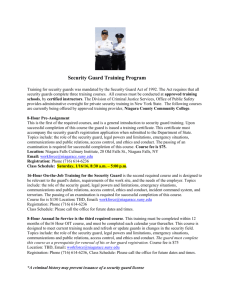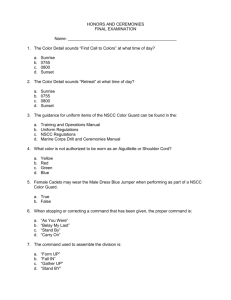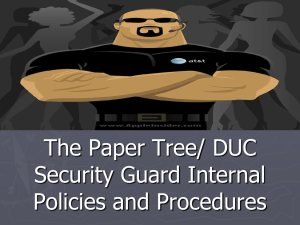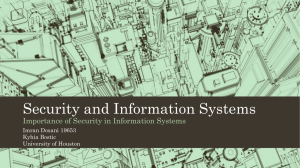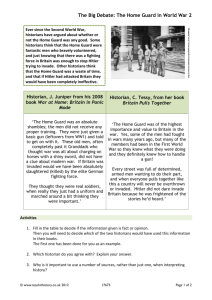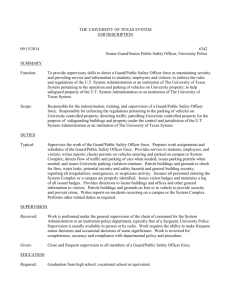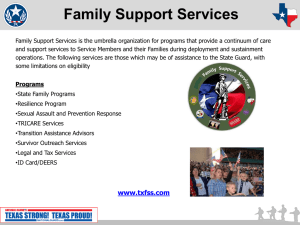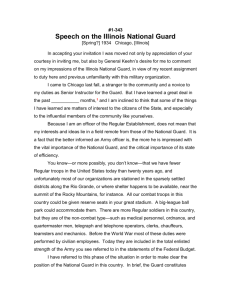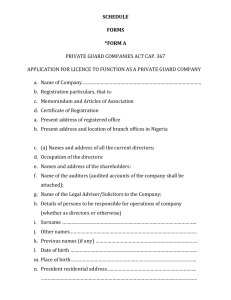Misplaced Priorities? By STEPHEN SNOWDER
advertisement
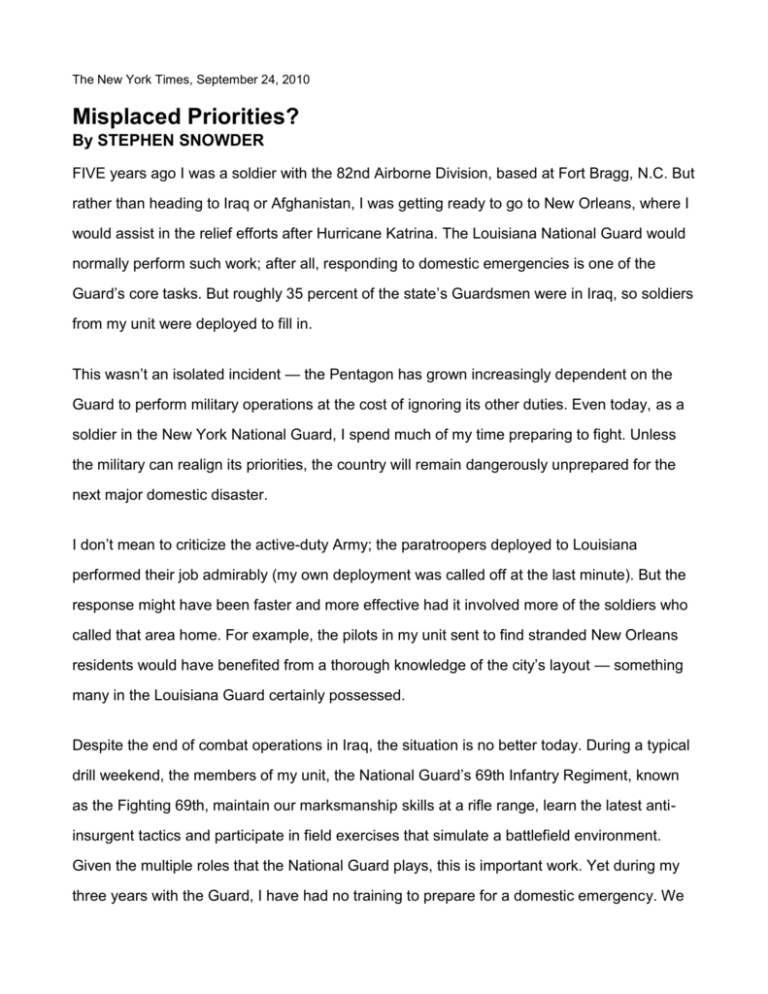
The New York Times, September 24, 2010 Misplaced Priorities? By STEPHEN SNOWDER FIVE years ago I was a soldier with the 82nd Airborne Division, based at Fort Bragg, N.C. But rather than heading to Iraq or Afghanistan, I was getting ready to go to New Orleans, where I would assist in the relief efforts after Hurricane Katrina. The Louisiana National Guard would normally perform such work; after all, responding to domestic emergencies is one of the Guard’s core tasks. But roughly 35 percent of the state’s Guardsmen were in Iraq, so soldiers from my unit were deployed to fill in. This wasn’t an isolated incident — the Pentagon has grown increasingly dependent on the Guard to perform military operations at the cost of ignoring its other duties. Even today, as a soldier in the New York National Guard, I spend much of my time preparing to fight. Unless the military can realign its priorities, the country will remain dangerously unprepared for the next major domestic disaster. I don’t mean to criticize the active-duty Army; the paratroopers deployed to Louisiana performed their job admirably (my own deployment was called off at the last minute). But the response might have been faster and more effective had it involved more of the soldiers who called that area home. For example, the pilots in my unit sent to find stranded New Orleans residents would have benefited from a thorough knowledge of the city’s layout — something many in the Louisiana Guard certainly possessed. Despite the end of combat operations in Iraq, the situation is no better today. During a typical drill weekend, the members of my unit, the National Guard’s 69th Infantry Regiment, known as the Fighting 69th, maintain our marksmanship skills at a rifle range, learn the latest antiinsurgent tactics and participate in field exercises that simulate a battlefield environment. Given the multiple roles that the National Guard plays, this is important work. Yet during my three years with the Guard, I have had no training to prepare for a domestic emergency. We 2 are based at the Lexington Avenue armory, but we haven’t discussed which areas of New York City are most vulnerable to terrorist attacks or natural disasters. Nor have we conducted joint training with local law enforcement to coordinate our response protocols. The difficult fact is that, with deployments looming over every National Guard unit in the country, there is simply no time for non-combat training. Unlike active-duty units, the National Guard trains only one weekend a month and two weeks each summer. This means that a unit facing deployment in a year has just over a month, all together, to get its soldiers ready. And thanks to the uncertainty of deployment timelines, combat training has to be done even if overseas duty isn’t on the schedule. Moreover, because Guardsmen spend the rest of their lives as civilians, free of the discipline imposed by a military lifestyle, training them is harder and takes longer than training active-duty soldiers. As a result of the continuous deployments and the realities of Guardsmen training, the country’s emergency-response structure is left with a dangerous, gaping hole. Congress and the Pentagon should fill that hole by setting new priorities for National Guard training and deployment to emphasize domestic responsibilities. Planners should examine which units are most likely to be needed by their home states — places like New York, which faces a heightened risk of terrorist attacks, or Louisiana, where another hurricane could wreak havoc — and remove them from overseas deployment lists. Those units should then receive extensive training for responding to domestic emergencies, with a special focus on the challenges faced by their home states. As the conflict in Iraq winds down, the Pentagon needs to let the National Guard go back to what it does best: responding to natural and manmade disasters at home. ________________________________________________________________ Stephen Snowder, a sergeant in the New York National Guard, was an intelligence analyst for the Army in Iraq from 2006 to 2007.
